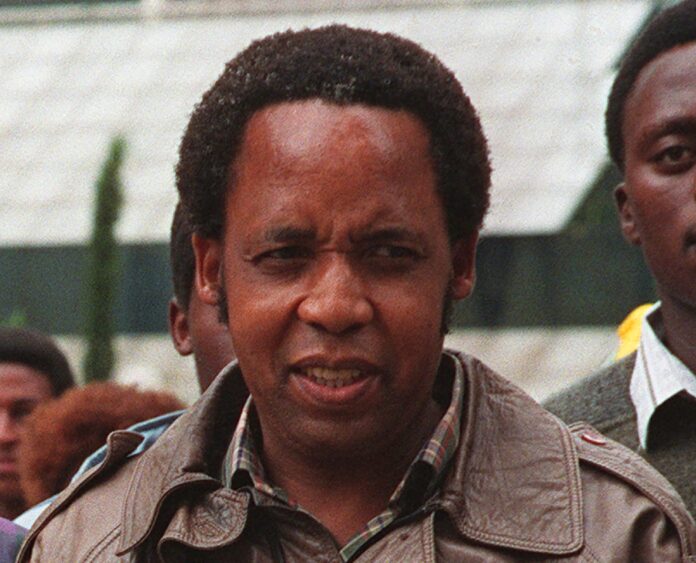Few figures in South Africa’s long struggle against apartheid embody the spirit of resistance and sacrifice as much as Chris Hani.
A fearless revolutionary, Hani played a vital role in the armed struggle against white minority rule, becoming a symbol of defiance and hope for millions.
His assassination in 1993, at a time when South Africa was on the brink of democracy, shocked the nation and nearly derailed the transition to freedom. Yet, his legacy continues to inspire the fight for justice and equality.
Early Life and Political Awakening
Chris Hani was born Martin Thembisile Hani on 28 June 1942, in the rural village of Sabalele, in the Eastern Cape province of South Africa. Growing up under the harsh realities of apartheid, he experienced firsthand the systemic discrimination faced by black South Africans. His father, Gilbert Hani, was politically conscious and often spoke about the injustices of white rule, planting in young Chris the seeds of political awareness.
Hani excelled in school and later attended Fort Hare University, a breeding ground for many African liberation leaders. It was here that he was exposed to the teachings of Marxism and socialism, ideologies that would shape his vision for South Africa’s future. In 1961, he joined the African National Congress (ANC) and soon after, its military wing, Umkhonto we Sizwe (MK), meaning “Spear of the Nation.”
The Armed Struggle Against Apartheid
As a dedicated soldier in MK, Hani quickly rose through the ranks. He underwent military training in the Soviet Union and engaged in guerrilla warfare operations in Zimbabwe (then Rhodesia), Botswana, and Angola. His leadership and bravery earned him a reputation as one of the most committed freedom fighters of his generation.
In 1969, he co-authored the Hani Memorandum, which criticised the corruption and complacency within the ANC leadership in exile. While his criticism sparked internal controversy, it also pushed the movement to address weaknesses in its structure.
Over time, Hani became the chief of staff of MK, leading operations against the apartheid regime and inspiring young militants to join the struggle.
Return from Exile and Political Leadership
After decades in exile, Hani returned to South Africa in 1990, following the unbanning of the ANC and the release of Nelson Mandela. With apartheid crumbling, he took on a leadership role in the South African Communist Party (SACP), serving as its General Secretary. His charisma and powerful speeches made him one of the most popular leaders of the liberation movement.
Hani was not just a military strategist but also a champion of workers’ rights, economic justice, and social equality. He argued that the fight against apartheid was not only about racial freedom but also about economic transformation, a stance that made him both loved by the poor and feared by the wealthy elite.

Assassination and National Crisis
On 10 April 1993, as South Africa was moving towards its first democratic elections, Hani was assassinated outside his home in Boksburg, Gauteng. His killer, Janusz Waluś, a Polish immigrant with links to far-right Afrikaner groups, shot him in cold blood. The murder was part of a conspiracy to ignite a civil war and derail the peace process.
News of Hani’s assassination sent shockwaves across the country. Thousands of people took to the streets in anger, and violence threatened to spiral out of control. Nelson Mandela, recognising the gravity of the situation, addressed the nation in a historic speech, urging restraint and unity:
“A white man, full of prejudice and hate, came to our country and committed a deed so foul that our whole nation now teeters on the brink of disaster. Now is the time for all South Africans to stand together against those who want to destroy what we are building.” Mandela’s words helped prevent the country from plunging into chaos, and just a year later, on 27 April 1994, South Africa held its first democratic elections, bringing an end to apartheid.
Hani’s Enduring Legacy
Chris Hani remains a towering figure in South African history. He is remembered as a man of action, principle, and courage – someone who was willing to lay down his life for freedom. Today, his name is immortalized in schools, streets, and institutions across South Africa.
Yet, many of the issues he fought for: economic inequality, poverty, and social justice – remain unresolved. His legacy challenges South Africans to continue striving for the ideals he championed: a nation not just free from racial oppression but also from economic and social injustice. Chris Hani’s life and death serve as a powerful reminder that the struggle for a just society is ongoing. He may have been assassinated, but his vision for a truly free South Africa lives on.


